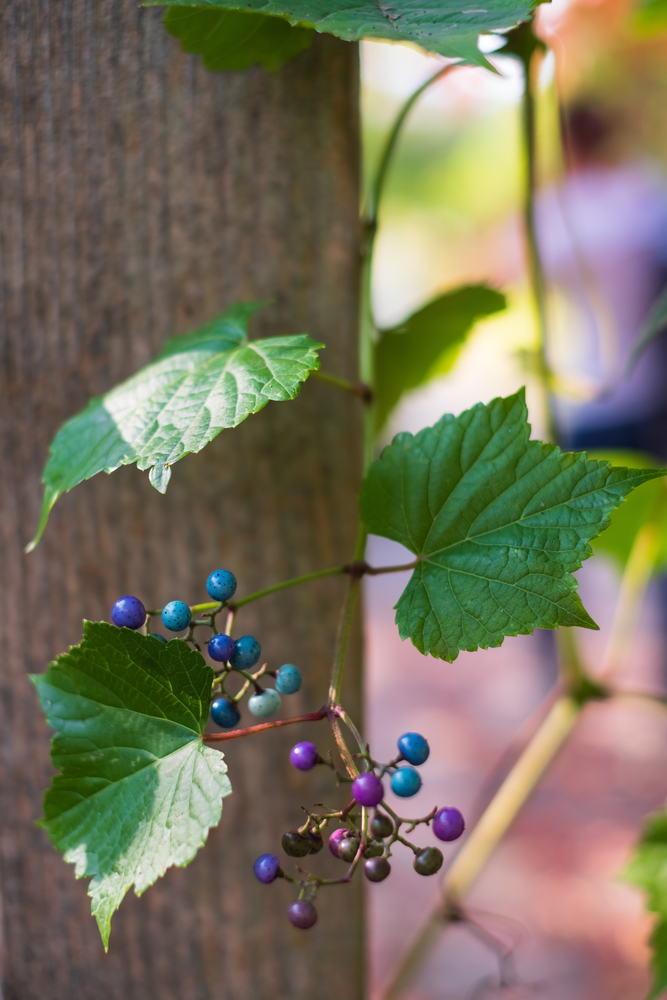Description
Ampelopsis is a genus of woody vines in the grape family (Vitaceae), which are native to Asia and North America. They are commonly known as pepper vines, porcelain vines, or wild grapes, and are valued for their attractive foliage, colorful berries, and ability to provide shade and screening. Here are some horticultural notes on the genus Ampelopsis:
Planting: Ampelopsis vines prefer well-drained soils that are rich in organic matter. They can be planted in full sun to partial shade and are adaptable to a wide range of soil types. Provide a trellis or support for the vines to climb.
Watering: Ampelopsis vines prefer moderate moisture levels and should be watered deeply once or twice a week during dry periods. Avoid overwatering, as this can lead to root rot.
Fertilizing: Ampelopsis vines benefit from regular fertilization with a balanced fertilizer, applied in the spring and summer.
Pruning: Ampelopsis vines can be pruned in the fall or winter to control their size and shape. Remove any dead or damaged branches, and cut back any excessively long shoots. Ampelopsis vines can also be pruned after flowering to encourage a more compact growth habit.
Propagation: Ampelopsis vines can be propagated from stem cuttings taken in the spring or early summer. They can also be propagated from seed, but the seeds can take several years to mature.
Pests and diseases: Ampelopsis vines are generally pest and disease resistant, but may occasionally be affected by aphids, mealybugs, or scale insects. Control these pests with insecticidal soap or horticultural oil. Ampelopsis vines may also be susceptible to powdery mildew, which can be controlled with fungicides or by planting resistant varieties.
Uses: Ampelopsis vines are commonly grown for their attractive foliage and colorful berries, which range in color from blue to purple to pink. The berries are not edible for humans but are a valuable food source for birds. Some species, such as Ampelopsis brevipedunculata, are also valued for their medicinal properties in traditional Chinese medicine.


